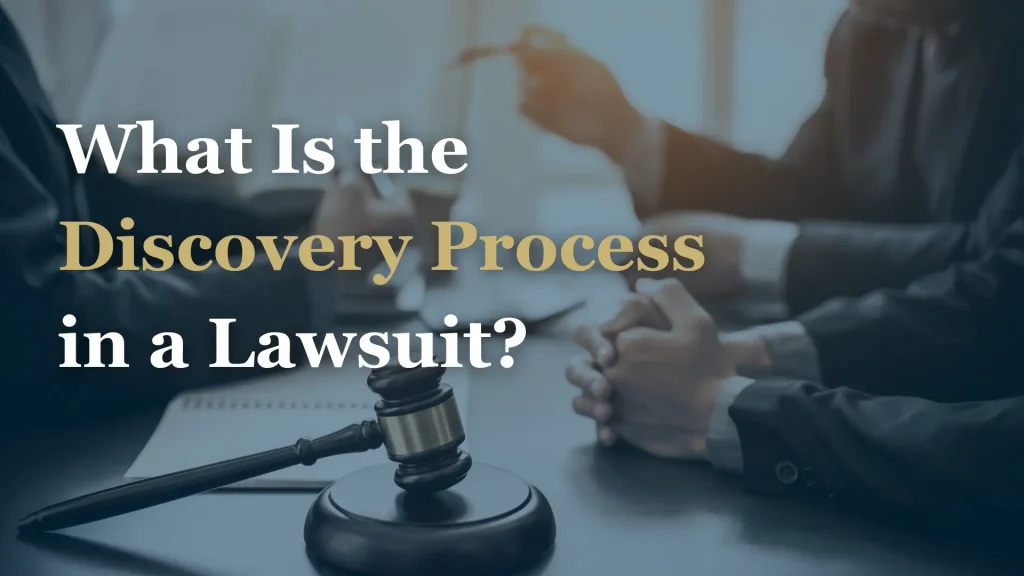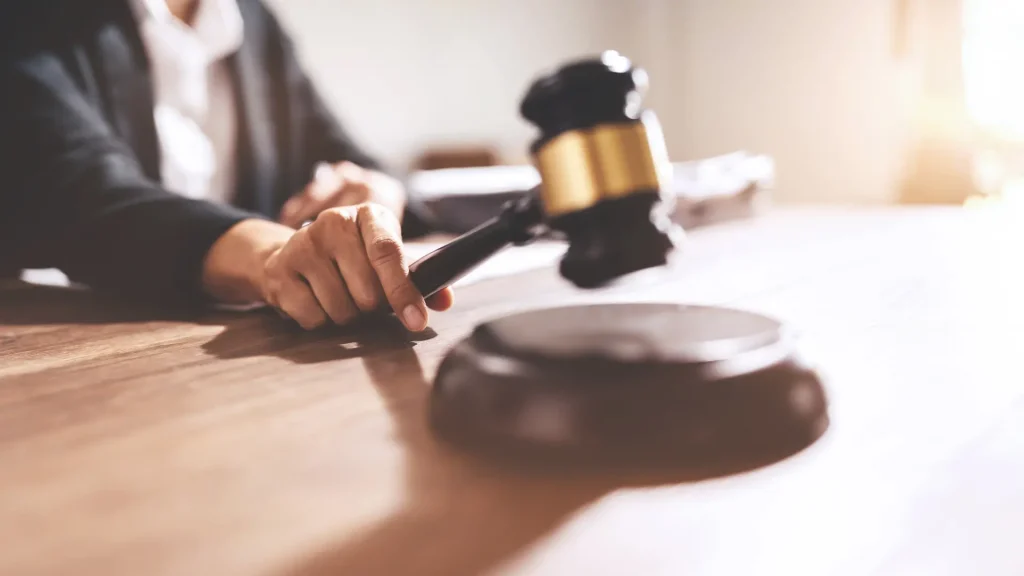
When you file a personal injury lawsuit, discovery may become the most time-consuming portion of the litigation process. Discovery serves multiple purposes in helping a lawsuit reach the truth in a dispute between parties. Understanding what to expect during discovery in your personal injury case can prepare you for the delays, challenges, and obstacles that may arise as you pursue the resolution of a claim. A personal injury attorney can guide you through discovery in a lawsuit and protect your rights and interests.
The Purpose of Legal Discovery
Discovery in litigation involves the exchange of evidence, information, documents, and witness testimony between parties in a car. In a personal injury lawsuit, discovery serves several critical purposes. First, discovery facilitates transparency and fairness in legal proceedings by reducing the risk of unfair surprises, as parties must exchange relevant information and evidence upon request from the opposing party. Discovery rules prohibit parties from concealing critical evidence or information once the other party requests it.
Discovery also helps facilitate settlement in personal injury cases by allowing each side to see the strengths and weaknesses of the other’s case. This transparency allows parties to assess their chances at trial and may encourage them to pursue a settlement to mitigate the risks of a more unfavorable result.
When a personal injury lawsuit goes to trial, discovery can help the parties and the court identify the issues in dispute that the trial should focus on. Discovery can also lead parties to formulate requests for admissions to establish uncontroverted facts or file motions for summary judgment to resolve various issues before trial when the evidence uncovered in discovery establishes a party’s right to judgment as a matter of law.
Types of Discovery Methods
South Dakota’s Rules of Civil Procedure govern discovery in personal injury cases. Parties may use various tools during discovery, with some of the most common examples of discovery methods include:
- Interrogatories: Parties may send each other interrogatories or lists of questions that ask a party to disclose factual information relevant to the case, such as dates of relevant events, witnesses who may have relevant testimony, and specific actions the party took before, during, or after the events giving rise to the case.
- Requests for production of documents: In a request to produce documents, a party asks the opposing party to provide copies of relevant documents, whether in physical or electronic format. Common documents exchanged in personal injury cases include emails, accident/incident reports, accident scene photos/videos, medical records, and insurance claim documentation.
- Depositions: A deposition allows parties to put relevant witnesses’ testimony on the record, which can help parties identify future discovery requests. Getting witness testimony in a deposition also helps parties understand what a witness might testify to at trial. Although depositions usually occur outside of court, each party can ask a witness questions, and the witness must answer the questions under oath, with the deposition videotaped or transcribed by a court reporter.
- Requests for admissions: A party may send the opposing party a request for admissions, asking them to admit to or deny specific facts. Requests for admissions help narrow down the issues that remain in dispute in a case, relieving parties of the need to present evidence or witness testimony at trial to establish facts that neither party disputes.
Discovery Disputes
Although courts expect parties to engage in a collaborative process during discovery, disputes frequently arise over discovery requests. Parties may object to discovery requests, arguing that the request seeks too broad of a scope of information or documents or seeks irrelevant evidence. In the U.S. legal system, parties may seek discovery of any information or documents reasonably calculated to lead to the discovery of admissible evidence, which means a party can request discovery of information that they would or could not use at trial but that may help them obtain evidence they can use.
Parties may also raise objections to discovery requests, asserting that a request seeks confidential or privileged information. Some of the most common forms of privilege asserted against discovery requests in personal injury cases include attorney-client and physician-patient privileges.
The court resolves parties’ discovery disputes by granting a party’s request to compel responses to discovery requests or to quash such requests. Courts may also grant a party’s motion for a protective order that limits parties’ use and disclosure of confidential, privileged, or sensitive information disclosed in discovery.
The Role of Technology in Discovery
In recent years, electronic discovery or e-discovery has become critical in many court cases, including those involving personal injury claims. With medical records and insurance company claims documentation now kept mainly in electronic form, most personal injury cases will involve some electronic discovery. The discovery process requires parties to collect, store, review, and produce relevant electronically stored information, such as medical/insurance company records, emails, text messages, and social media posts.
How Long Is the Discovery Process in a Civil Lawsuit?

The length of the discovery process in a personal injury lawsuit mostly depends on the case’s complexity. In most cases, discovery can last from a few months to over a year. Cases that involve complex factual and legal issues, including issues that require expert reports and testimony, may have a more extended discovery period. The court will establish a schedule at the beginning of a personal injury case that establishes deadlines for the discovery process. However, parties frequently ask for extensions to these deadlines due to unforeseen complexities arising in delays and difficulties in completing discovery requirements.
Contact Our Personal Injury Firm to Learn More About What Occurs During the Discovery Process in a Lawsuit
When you have a personal injury claim, an experienced attorney can guide you through the litigation process, including discovery in a personal injury lawsuit. Call Turbak Law Office, P.C. at 605-886-8361 today for a free, no-obligation consultation with a Watertown personal injury lawyer to learn more about what to expect during discovery when you file a personal injury lawsuit against the party or parties at fault for your harm and loss.
Related Posts:
Your Vehicle Was Wrecked, and It Wasn’t Your Fault! Now What?
Wrongful Death vs Survival Action Claims: What’s the Difference?
Can You Sue Someone for Lying About a Car Accident in South Dakota